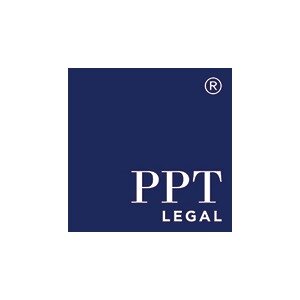Best Antitrust Litigation Lawyers in Greece
Share your needs with us, get contacted by law firms.
Free. Takes 2 min.
Or refine your search by selecting a city:
List of the best lawyers in Greece
About Antitrust Litigation Law in Greece
Antitrust litigation in Greece refers to the legal processes and court actions associated with enforcing competition laws. These laws are designed to promote fair competition, prevent monopolies, prohibit cartels, and restrict anti-competitive practices that could harm consumers or other businesses. Greek antitrust laws align closely with European Union regulations, as Greece is a member state. The principal national legislation is Law 3959/2011, which mirrors many aspects of EU competition law. The Hellenic Competition Commission (HCC) is the main regulatory authority responsible for investigating alleged breaches and enforcing antitrust policies. Antitrust litigation arises when disputes over the application or violations of these rules result in legal proceedings, either before the HCC or in Greek courts.
Why You May Need a Lawyer
Antitrust litigation is highly specialized and often complex, involving both Greek and EU competition regulations. Situations where you may require legal help include:
- Facing an investigation by the Hellenic Competition Commission for alleged anti-competitive behavior
- Receiving fines or penalties for practices deemed restrictive of competition or abuse of dominance
- Being subject to allegations of price fixing, bid rigging, market sharing, or collusive behavior
- Challenging a competitor’s conduct that is restricting your business unfairly
- Advising on compliance for mergers and acquisitions with potential competition implications
- Seeking damages for anti-competitive practices suffered as a consumer or competitor
- Preparing defense or appeals in court against antitrust rulings
Because of the serious financial and reputational risks at stake, as well as the technical nature of the law, consulting with an experienced antitrust litigator is strongly recommended.
Local Laws Overview
The cornerstone of antitrust litigation in Greece is Law 3959/2011 on the Protection of Free Competition. Key provisions prohibit:
- Agreements between undertakings that prevent, restrict, or distort competition (such as cartels or price-fixing agreements)
- Abuse of a dominant market position (such as imposing unfair prices or limiting production)
- Concentration of businesses that may significantly impede effective competition (mergers or acquisitions requiring notification to the HCC)
Enforcement is carried out by the Hellenic Competition Commission, which has investigative powers to conduct dawn raids, request documents, and impose substantial administrative fines. The Commission’s decisions can be appealed before the Administrative Courts of Appeal and, ultimately, the Council of State. Greek laws operate alongside EU competition rules under Articles 101 and 102 of the Treaty on the Functioning of the European Union. This dual framework means that antitrust cases may involve both national and EU procedures.
Frequently Asked Questions
What kinds of practices are considered anti-competitive under Greek law?
Practices such as price fixing, bid rigging, market sharing, output restriction, and abuse of dominant position are considered anti-competitive. This includes both formal agreements and informal cooperation between businesses.
Who can file a complaint with the Hellenic Competition Commission?
Any individual, business, or association who becomes aware of a potential breach of competition law can file a complaint. The HCC may also launch investigations on its own initiative.
What penalties can be imposed for violating competition law in Greece?
The HCC can impose hefty administrative fines, often based on a percentage of annual turnover. Individuals may also face sanctions if personally involved in the violation. Fines can reach up to 10 percent of a company’s total global turnover.
Are there leniency programs for companies that cooperate with investigations?
Yes, Greece operates a leniency program. Companies that admit participation in a cartel and provide evidence may receive reduced fines or immunity, depending on their level of cooperation and timing.
Can a company appeal an adverse decision from the HCC?
Yes, companies and individuals can appeal an HCC decision before the Administrative Court of Appeal. Further appeals can be made to the Council of State, Greece’s highest administrative court.
How long does antitrust litigation typically take in Greece?
The duration depends on the complexity of the case, but investigations and proceedings can take several months to years. Appeals processes also add time.
How are damages claims handled in Greek antitrust cases?
Victims of anti-competitive conduct can seek compensation through the civil courts. The proceedings may follow or be independent from administrative enforcement actions.
Do Greek laws apply to foreign companies operating in Greece?
Yes, any company whose practices have an effect on competition within the Greek market is subject to Greek competition law, regardless of where the company is based.
What is the relationship between EU and Greek antitrust laws?
Greek national laws are closely aligned with EU rules. In many cases, the national competition authority will coordinate or align its decisions with European Commission actions, especially for cross-border or large-scale infringements.
Can individuals be held personally liable in antitrust cases?
Yes. Company directors, managers, and legal representatives can sometimes be personally fined or held administratively responsible for the company’s conduct.
Additional Resources
- Hellenic Competition Commission (HCC) - The official authority for competition law enforcement in Greece
- European Commission - DG Competition - For cases with a broader EU impact
- Ministry of Development and Investments of Greece - Overseeing commercial and competition policy
- Greek Bar Associations - Directories for specialized competition and antitrust lawyers
- Consumer protection agencies for assistance in cases involving consumer harm
These organizations provide guidance, reports, case law summaries, and updates on legislative changes relevant to antitrust litigation in Greece.
Next Steps
If you believe you are involved in, or affected by, an antitrust issue in Greece, consider the following steps:
- Document any potential evidence or records related to the suspected anti-competitive conduct
- Contact a qualified lawyer with experience in Greek and European Antitrust law for an assessment of your case
- If facing an HCC investigation, cooperate prudently and follow your lawyer’s guidance on compliance and defense
- If you have suffered harm due to anti-competitive practices, explore your rights to compensation
- Stay informed on deadlines for filing complaints or appeals
- Consult the official websites of the HCC and relevant governmental bodies for detailed procedures and guidance
Early and informed action is key in antitrust litigation. Legal specialists can help you navigate the complex regulatory landscape and maximize your chances of a successful outcome.
Lawzana helps you find the best lawyers and law firms in Greece through a curated and pre-screened list of qualified legal professionals. Our platform offers rankings and detailed profiles of attorneys and law firms, allowing you to compare based on practice areas, including Antitrust Litigation, experience, and client feedback.
Each profile includes a description of the firm's areas of practice, client reviews, team members and partners, year of establishment, spoken languages, office locations, contact information, social media presence, and any published articles or resources. Most firms on our platform speak English and are experienced in both local and international legal matters.
Get a quote from top-rated law firms in Greece — quickly, securely, and without unnecessary hassle.
Disclaimer:
The information provided on this page is for general informational purposes only and does not constitute legal advice. While we strive to ensure the accuracy and relevance of the content, legal information may change over time, and interpretations of the law can vary. You should always consult with a qualified legal professional for advice specific to your situation.
We disclaim all liability for actions taken or not taken based on the content of this page. If you believe any information is incorrect or outdated, please contact us, and we will review and update it where appropriate.
Browse antitrust litigation law firms by city in Greece
Refine your search by selecting a city.
















